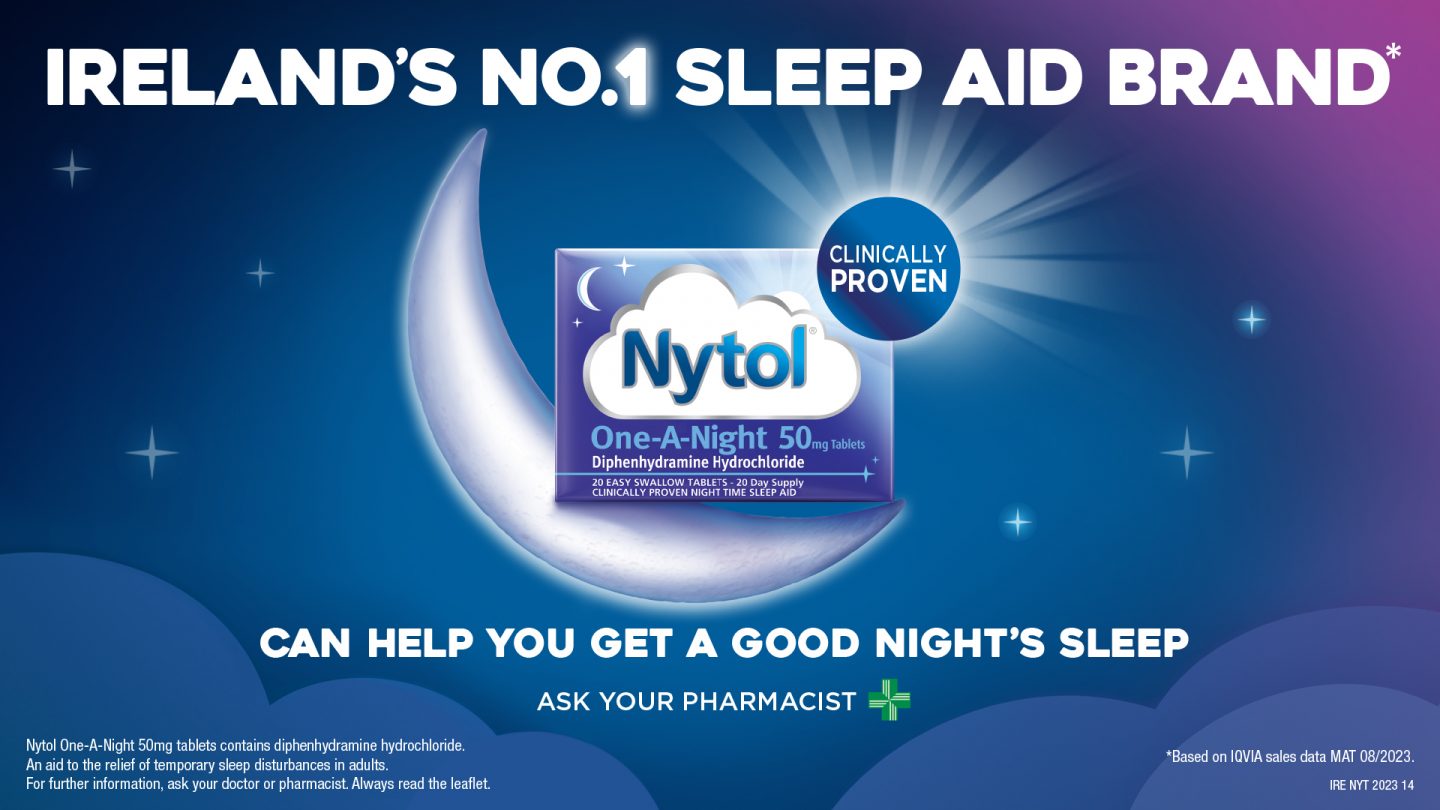How Sleep Impacts Heart Health

How sleep impacts heart health? So, experiencing any type of sleep disorder, whether it is difficulty falling asleep, staying asleep, or not feeling rested after sleep, can significantly impact your overall health. Sleep is a vital component of our well-being, influencing various bodily functions and aspects of our lives. Without adequate, quality sleep, our bodies struggle to operate optimally.
But what is the connection between sleep and the health of our heart? To give you a straightforward summary before diving deeper, the consensus in the medical community suggests that while sleep does influence heart health, it’s not the only factor.
Therefore, if you’re currently facing sleep challenges and are concerned about the implications for your heart, it’s important not to panic. However, it’s wise to consult with a healthcare provider or our expert pharmacists at McCauley, about your sleep issues and any potential risk to your heart health, to ensure you’re taking appropriate measures for your well-being.
What is a ‘healthy’ amount of nightly sleep?
It can be tempting to assume that a drop-off in sleep instantly puts you in unhealthy or ‘at risk’ category. The truth is, how long we sleep on average changes as we age. Older people often tend to sleep less. If you’re just getting an hour’s rest less than a decade ago, it’s nothing to worry about.
How much we ‘need’ to sleep can vary from person to person and is determined by several factors including age, genetics and lifestyle.
The general guidance is that a healthy amount of sleep is between seven and nine hours per night. However, some people may need more in order to operate at their best, while some people are capable of being fresh after just five- or six-hours’ of sleep.
The link between sleep and overall health
Expercts suggest that about one-third of adults are not getting the recommended amount of sleep each night. This shortfall can trigger a myriad of health complications.
Beyond mere fatigue, insufficient sleep can have far-reaching effects on daily life. Sleep deprivation is associated with a decline in decision-making abilities, a decrease in creativity, an increased likelihood of errors, and a higher risk of car accidents, all due to its impact on cognitive function. Sleep is crucial for brain health.
Moreover, a deficit in nighttime rest can negatively influence your mood, reduce your sex drive, lead to weight gain, diminish your productivity, and weaken your immune system.
Sleep and heart health – Which conditions are linked?
If your sleep condition is relatively new or not too serious, it’s extremely likely that your heart’s health is unlikely to be too affected by what’s happening.
However, if your sleep condition is long-standing and quite severe, there may be a chance that it is contributing towards poorer heart health. If you have a long history of sleep disorders – or have recently developed a severe one – do consult your GP for advice.
The kinds of sleep conditions which have been linked with heart issues include:
- Insomnia
Insomnia describes persistent and debilitating problems with getting to sleep, remaining asleep, or both. Heart disease and high blood pressure have been linked with long-term insomnia. Insufficient sleep over time can also result in bad habits that are bad for your heart in the longer term, such as higher stress levels, less drive to exercise and unhealthy eating choices.
- Sleep apnea
When your airways repeatedly become obstructed while you sleep, it results in brief pauses in breathing. This is known as sleep apnea. The amount of oxygen your body receives while you sleep is affected by sleep apnea, which can increase your chance of
developing several heart-based illnesses such as high blood pressure, heart attacks and strokes.
- Narcolepsy
Narcolepsy is a chronic condition that disrupts sleep-wake cycles, causing extreme daytime sleepiness and sudden sleep attacks. Studies indicate that those with severe narcolepsy are at a higher risk of developing heart problems such as irregular heartbeats, high blood pressure, and cardiovascular disease. This underscores the need for effective narcolepsy management and regular heart health monitoring.
How sleep and heart disease may be linked
Again, it’s worth pointing out that poor sleeping habits are not ‘strongly linked’ with developing heart disease, so if you suffer from bouts of insomnia, it’s not a reason to unduly panic. But some research has indicated that certain heart issues can be exacerbated by ongoing poor sleep.
According to studies, atherosclerosis, high blood pressure and increased cholesterol are all linked to insufficient or poor-quality sleep. Additionally, regular short sleep patterns can raise the risk of cardiovascular problems.
The prevalence of heart arrhythmias, plaque buildup, heart failure, and coronary artery disease may also be slightly higher in those with sleeping difficulties than in the general population.
The heart rate normally decreases throughout NREM sleep stages and then increases as you get ready to wake up. A poor night’s sleep, particularly when populated by sudden awakenings can cause a sudden increase in heart rate.
According to research, those who have trouble falling asleep are more prone to experience an irregular heartbeat. These factors suggest that sleep deprivation and heart palpitations may be related.
If you’re concerned about your bedtime heart health, don’t ignore it or become too alarmed. Seek medical advice and act on the specialist’s advice.
For more information on good sleep habits and sleep hygiene, read the Nytol blog today or contact one our Pharmacists for more advice here.
Nytol One-A-Night is used to relieve temporary sleep difficulties, helping you drift off, sleep soundly, and wake up refreshed. Nytol can help improve your sleep quality, depth of sleep & reduces the time it takes to fall asleep.
Nytol contains a commonly used antihistamine called diphenhydramine hydrochloride (trust us it’s easier to use than to say!). It works by blocking the normal actions of histamine, the chemical that stimulates arousal-promoting areas of the brain. This helps reduce alertness and promote that first drowsy stage of sleep, helping you to then drift off into a restful, deeper sleep.
Pop instore for expert advice from a McCauley pharmacist or discover more at McCauley.ie.
* For further information, ask your pharmacist. Always read the leaflet.

How Much Sleep Do I Need? – WebMD
Six hours’ sleep a night is enough say scientists – The Independent
1 in 3 adults don’t get enough sleep – CDC
Do Your Heart a Favour – Get More Sleep – Hopkins Medicine
The association between insomnia and cardiovascular diseases – Nature and Science of Sleep,Kai Spiegelhalder, et al
Sleep Apnea – Mayo Clinic
Cardiovascular disorders in narcolepsy: Review of associations and determinants – Sleep
Medicine Reviews, Poul Jørgen Jennum, et al
The Association Between Insomnia and Atherosclerosis: A Brief Report – Nature and Science of Sleep, Xian-Li Pan, et al
Sleep Duration Linked to Cardiovascular Disease – Circulation journal, Bridget M. Kuehn
Obstructive Sleep Apnea and Cardiovascular Disease: Role of the Metabolic Syndrome and Its Components – Journal of Clinical Sleep Medicine, Girardin Jean-Louis, et al
Effects of sleep on the cardiovascular and thermoregulatory systems: a possible role for
hypocretins – Journal of Applied Physiology, H. Schwimmer, et al
Can’t sleep? You may be at risk for atrial fibrillation – Harvard Medical School
Sleep for Cognitive Enhancement – Frontiers
Lack of Sleep: Can it make you sick? – Mayo Clinic
